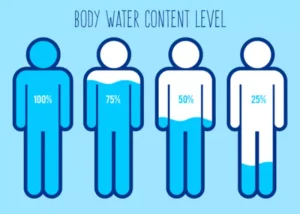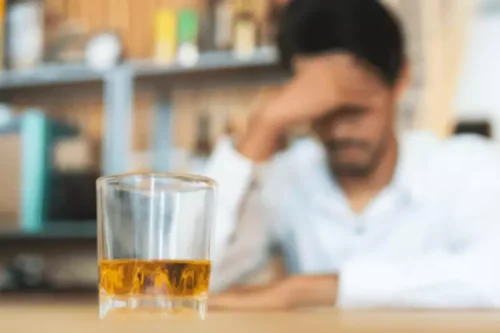Bookkeeping for CPG
16 de junho de 2021Tauron liczy, że docelowo będzie wypłacać dywidendę
3 de maio de 2022
The desired recreational high from cannabis also diminishes with use, prompting many users to escalate the dose. Following 25‐50 mg/kg/day for a median of 48 weeks in children and adults with treatment‐resistant epilepsies, 88% of all patients experienced treatment‐emergent AEs and 33% experienced severe AEs, including vomiting 66. In clinical studies of schizophrenia, mild AEs, diarrhea and nausea, occurred with a low incidence of ≥4%, with a frequency similar to placebo 35. McGregor is investigating cannabinol (CBN), a molecule that develops in cannabis as the psychoactive component tetrahydrocannabinol (THC) oxidizes. His group reported that CBN increased sleep in rats to a similar degree as zolpidem, but without the drug’s known negative side effect of suppressing rapid-eye-movement sleep9. Unpublished data of a single-night trial with 20 people with insomnia disorder show that people fell asleep 7 minutes faster after taking 300 milligrams of CBN compared with those taking a placebo; participants also reported subjective improvements in sleep and mood.
- As quantifier for ∆9-THC and CBD, the mass transition m/z 315 to 193 was used.
- Emergency Care BC is not liable for any damages, claims, liabilities, costs or obligations arising from the use of this document including loss or damages arising from any claims made by a third party.
- Lennox-Gastaut syndromes and is likely to be recommended off label by physicians for other conditions.
- CBD effectively treated anxiety by activating limbic and paralimbic regions of the brain 30.
- CBD also decreased anxiety following THC, with subjects reporting more pleasurable effects.
Cannabidiol Adverse Effects and Toxicity
In the case of clobazam this led to sedation, and its levels were subsequently lowered in the course of the study. This was is cbd addictive followed by a single 0.5 (Session 1) or 1.0μg/kg (Session 2, after 1 week of first administration to allow for sufficient drug washout) intravenous fentanyl dose. Adverse effects and safety were evaluated with both forms of the Systematic Assessment for Treatment Emergent Events (SAFTEE). This extensive tool tests, for example, 78 adverse effects divided into 23 categories corresponding to organ systems or body parts. No respiratory depression or cardiovascular complications were recorded during any test session.
Central Nervous System Effects
In a study by Devinsky et al., the mean CBD dose at 12 weeks was 22.9 mg/kg in patients with treatment-resistant epilepsy, with 48 patients receiving up to 50 mg/kg/day. Adverse events were reported in 79% of patients, but most were mild to moderate and transient. In case of Alzheimer’s disease (AD), studies in mice and rats showed reduced amyloid beta neuroinflammation (linked to reduced interleukin IL-6 and microglial activation) after CBD treatment. This led to amelioration of learning effects in a pharmacological model of AD. The chronic study we want to describe in more detail here used a transgenic mouse model of AD, where 2.5-month-old mice were treated with either placebo or daily oral CBD doses of 20 mg/kg for 8 months (mice are relatively old at this point). CBD was able to prevent the development of a social recognition deficit in the AD transgenic mice.
Cannabinoid Toxicity
This is a case of profound neurologic, cardiac, and respiratory depression secondary to acute CBD product intoxication resulting in ICU admission. The patient’s lack of substance abuse history and unintentional overdose should raise concern for physicians as more people are consuming such products. The aggressive marketing of these products paired with the lack of regulation and quality control has the potential to cause a significant negative impact on public health. Clinicians should be aware of this when prompted for advice from patients as well as when treating patients with potential intoxication. Further research into these compounds is certainly indicated and regulation may be warranted for consumer protection.
Is CBD good or bad for the brain?
- Some people experience fatigue after taking CBD, which may be due to its relaxing effect.
- The long-term safety of both cannabinoids, particularly in special populations such as adolescents and pregnant women, requires careful consideration and further research.
- With more states liberalizing the use of cannabis, many cases of toxicity are now being reported, esp in children and teenagers.
- Claims of “THC-free”, used by most manufacturers, even on highly contaminated products – sometimes based on the use of unsuitable analytical methodologies with limits of detection in the percentage range –, have to be treated as fraudulent or deceptive food information.
Short-term memory is impaired even after small doses in both naive and experienced users. The deficits appear to be in acquisition of memory, which may result from an attentional deficit, combined with the inability to filter out irrelevant information and the intrusion of extraneous thoughts. An essential round-up of science news, opinion and analysis, delivered to your inbox every weekday. However, being a substance whose effects may depend on individual sensitivity and CBD dosage, it is as with any substance, it is important to be alert and make sure you are in proper driving condition before driving a vehicle.
Genetic Factors Influencing CBD Metabolism
During SH-SY5Y cell differentiation, CBD did not induce changes in antioxidant potential, nor neurite density. CBD exposure during neuronal differentiation may sensitize immature cells to redox-active drug neurotoxicity. The complexity of CBD pharmacology offers tremendous therapeutic potential but also the potential for AEs and drug-drug interactions. The duration of acute clinical effects is mediated by drug redistribution into body fat stores rather than metabolism or elimination.
- We are highly confident that the true effect lies close to that of the estimate of the effect.
- Taking CBD frequently is generally safe, but it can lead to tolerance, where more of the substance is needed to achieve the same effects.
- THC most commonly produces euphoria, or a “high,” including feelings of intoxication and detachment, relaxation, altered perception of time and distance, intensified sensory experiences, laughter, talkativeness, decreased anxiety, decreased alertness, and depression.

In 42 patients administered 200 mg/day gradually increased to 800 mg/day CBD or amisulpride over 28 days, there were significantly fewer CBD-related AEs compared to amisulpride, including lower prolactin release, and less sexual dysfunction 38. Following oral 30, 100, and 300 mg/kg CBD for 90 days in rhesus monkeys, significant 57% decreases in testicular weights were observed after 200 mg/kg CBD that continued after the end of treatment 61. Similarly, acute and subchronic 0.6, 0.8, and 1.2 mg/kg smoked CBD exposure in rats showed a severe dose-related seminiferous tubule degeneration with interference in sperm maturation 100. In addition, testicular weight decreases correlated with a dose-related inhibition of spermatogenesis.
Underlying data

Reactions can include severe anxiety or panic, unpleasant somatic sensations, delirium, mania, or paranoia. Anxiety and/or panic are the most common reactions; they are of sudden onset during or shortly after smoking, or they can appear more gradually drug addiction treatment 1-2 hours after an oral dose. These effects often occur in those who unwittingly consume marijuana (eg. those ingesting baked goods that they did not know contained marijuana). In 2020, suvorexant became the first medication to be approved for treating sleep disorders in people with Alzheimer’s disease7.

Twelve (14%) patients treated with CBD and one (1%) treated with placebo withdrew from the study. The studies that led to FDA approval of Epidiolex® for the treatment of severe forms of epilepsy, used CBD as an adjunct to clobazam, valproate, levetiracetam, and topiramate, resulting in seizures reduction with few AEs, compared to other drugs. Recently, Solowij et al. described a 10-week study of daily 200 mg CBD in cannabis dependence to improve psychological symptoms and cognition 41.